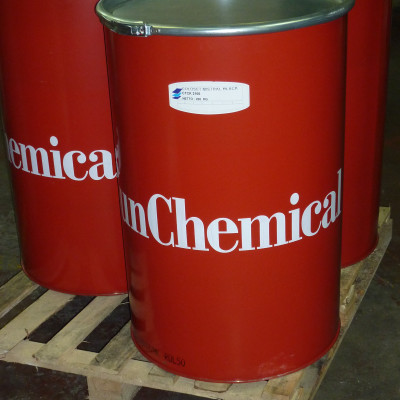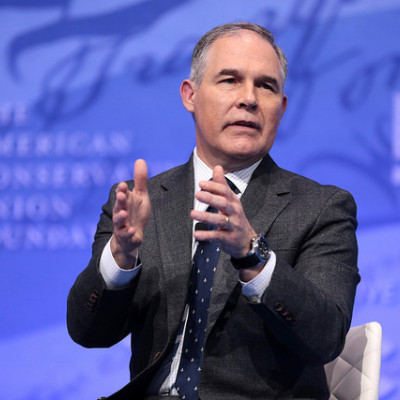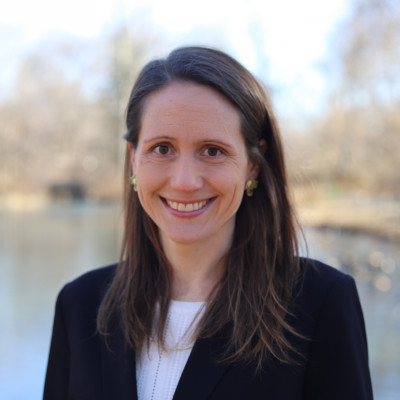March 31, 2017
March 2017 at Policy Integrity:
- Trump’s Environmental Executive Order;
- California Car Standards, Distributed Energy;
- Toxic Substances Control Act Comments;
- Revesz on Scott Pruitt’s “Federalism”;
- New York State Acknowledges Policy Integrity’s Input on Social Cost of Carbon;
- Staff Spotlight: Bethany Davis Noll
-

Trump Targets Clean Power Plan, Coal Moratorium, Social Cost of Carbon
President Trump’s recent executive order seeks to limit government action on climate change, but dismantling federal climate policies will take more than the stroke of a pen. “This is the first move of a long chess game that will take years to unfold, and future moves will be far more challenging,” said Richard Revesz in a CNN article, speaking about the efforts to roll back the Clean Power Plan. The order also ends the Department of Interior’s moratorium on new coal leases on public land. This means any new leases will use the “outdated minimum bids, rental rates, and stagnant royalty rates that have been used for decades,” Jayni Hein told Vox. While these policy changes were put forward as an act of job creation, Revesz told ABC News that “rolling back regulations will not create jobs,” as coal employment has dropped due to mining automation and natural gas prices, not regulation. Our analysis of the order was also featured in the Christian Science Monitor, Newsweek, NPR, and other national outlets.
-

California Reviews Car Emissions Standards, Distributed Energy Policies
We recently weighed in on two important policy debates in California, submitting comments on car emissions standards and the state’s valuation of distributed energy resources. The California Air Resource Board’s Advanced Clean Cars program sets pollution limits and zero-emissions vehicle targets for automobiles sold in California. California is unique in that a waiver from EPA allows the state to set its own automobile emission targets, which other states can choose to adopt. Scott Pruitt has suggested he may consider revoking California’s waiver. Our comments on the program’s midterm review focus on the strong legal basis for California’s authority to enforce these standards and EPA’s lack of authority under the Clean Air Act to retract the waiver. Additionally, we submitted comments to the California Public Utilities Commission supporting their use of a societal cost test to value the net benefits of distributed energy resources. Among other recommendations, we encourage the Commission to assess the full range of reasonably quantifiable externalities, rather than just climate damages.
-

Toxic Substances Control Act Comments
Our recent public comments to EPA on a pair of regulations issued under the newly amended Toxic Substances Control Act (TSCA) discuss how the agency can strengthen its cost-benefit analyses and better assess the risks chemicals pose to human health. Our first comment letter covers proposed restrictions on trichloroethylene (TCE), a chemical used in many dry cleaning facilities. We recommend that EPA clarify the comparative economic impacts of a ban on the manufacture of TCE for certain uses and a limit on TCE exposure in the workplace. We also recommend that EPA clarify some aspects of its discussion of the costs associated with available substitutes for TCE. Our second comment letter focuses on how EPA can incorporate cost-benefit analysis into future risk-management decisions under the new TSCA.
-

Revesz on Scott Pruitt’s “Federalism”: States Can Pollute, but Not Protect
EPA Administrator Scott Pruitt has vowed to address federal overreach and return environmental protection to states, wrapping himself in the mantle of federalism. But as Richard Revesz argues in his recent Los Angeles Times op-ed, “[Pruitt’s] zeal for preserving the autonomy of states is limited to states that favor less stringent environmental protection.” As Oklahoma’s Attorney General, Pruitt sued the EPA over its Cross-State Air Pollution rule, and he has mischaracterized the rule as inhibiting states’ rights when it in fact seeks to settle interstate disputes over cross-border pollution. Pruitt has also signaled opposition to California’s state air pollution safeguards, some of which are more stringent than federal standards, calling into question his commitment to state authority. Revesz’s op-ed was shared thousands of times on social media outlets.
-

New York State Acknowledges Policy Integrity’s Input on Social Cost of Carbon
New York State has chosen to use the Social Cost of Carbon (SCC) to value climate change benefits in its Zero Emissions Credits program, which aims to compensate nuclear plants for their zero-emission generation. In a recent letter to the New York State Assembly, Richard L. Kauffman, Chairman of Energy and Finance for New York, noted Policy Integrity’s role in encouraging the use of the SCC. Kauffman defended the SCC as the best estimate for monetizing avoided carbon emissions from the state’s nuclear fleet. Policy Integrity recommended that New York State use the SCC to monetize emission reductions in its Clean Energy Standard, which aims to get 50% of the state’s energy from renewables by 2030 and reduce the state’s greenhouse gas emissions by 40%. Other states that have been struggling to keep their nuclear plants online to prevent an increase in greenhouse gas emissions have since started following New York’s lead and adopting a similar approach based on the SCC. While we encourage technology-neutrality, we continue to express strong support for using the SCC to value reductions in carbon emissions.
-
Staff Spotlight: Bethany Davis Noll
We’re pleased to welcome Bethany Davis Noll as our newest Senior Attorney. She will aid in Policy Integrity’s legal work on federal and state environmental issues. Davis Noll previously served as Assistant Solicitor General in the New York Attorney General’s Office, where she filed briefs for states in support of EPA’s Clean Power Plan and other important federal environmental regulations. In 2016, she was awarded the Louis J. Lefkowitz Memorial Award for her work on several environmental appeals. Prior to that, she was a litigation associate at Debevoise & Plimpton LLP, where she led a team in a pro bono Clean Water Act enforcement suit. Davis Noll also served as an adjunct lecturer in law at Columbia Law School for four years.

